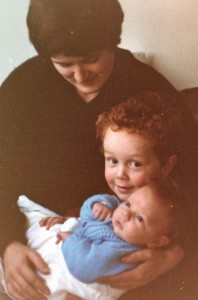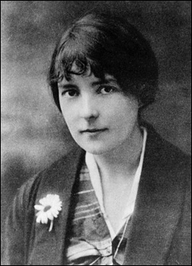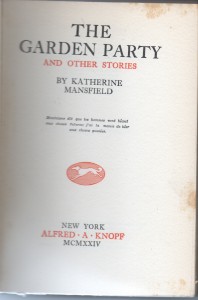When domestic and literary lives collide
Among the battered manuscript boxes in my old black filing cabinet, you won’t find the draft of my first novel. It’s gone, the victim of a long-standing conflict for women between the dream of a writing life and the urge to domesticity.
Katherine Mansfield was my heroine and role model. Born in New Zealand in 1888, she too had embarked for England as a young woman determined to make her name as a writer. Through privation and illness she continued to write and publish story collections that made her famous. I could do that too, I told myself.
But there was a variation to our respective histories I had not counted on. In New Zealand before we left, I had given birth to a stillborn daughter. Looking back, I understand that depression fueled by guilt and buried grief over this loss exacerbated the homesickness and culture shock I experienced that first year in England. My unsuccessful search for a writing job did not help. In traditional wifely fashion, I had held off until Tony found work, in a company based west of London, then scrambled, in an unforgivingly tight rental market, to find us somewhere to live nearby. By the time we were settled, a lengthy daily commute into London seemed overwhelming.
I also ran into a catch-22: even though I had been a member in good standing of the New Zealand journalists union, no paper or magazine in London would hire me unless I was a member of the British journalists union, and it was not possible to join that union without first having a job on a paper. When the local newspaper in Windsor turned me down for a posted job because I refused to promise not to get pregnant and ‘waste their time,’ I decided the best thing to do was to start work on my novel and to have another child. I believed, naively, that I could handle taking care of a child and having a writing career. In retrospect, any kind of job would have made better economic sense. We were desperately poor, but the dream of making my way as a writer still held.
I don’t remember much of the plot of that first novel. Two main characters were New Zealand immigrants to England, like ourselves. There was also another couple, and some symmetry of cross-coupling, probably influenced by the Iris Murdoch novels I was reading. I remember feeling uneasy that the plot line was uncovering a sense of dissatisfaction and disillusionment in my own life and that I didn’t know how to resolve the story.
 By the time we left England five years later, my world revolved around our two small sons. I found it harder and harder to find time to work on my novel. I pushed aside the dissatisfactions with my own life that the novel echoed. In California things would be different, I told myself. I would devote my life to being a good mother. One bleak winter afternoon as we were packing up to leave the tiny house we had bought in Egham, Surrey, I came to a decision. I was alone, Tony at work, our older son playing at a neighbor’s house, the baby asleep upstairs. Outside under a lowering sky, the baby’s nappies, frozen into boards, hung motionless on the clothesline. Inside, a small coal fire burned in the grate. I sat on the floor in front of the fireplace and fed the unfinished draft of my novel page by page into the flames.
By the time we left England five years later, my world revolved around our two small sons. I found it harder and harder to find time to work on my novel. I pushed aside the dissatisfactions with my own life that the novel echoed. In California things would be different, I told myself. I would devote my life to being a good mother. One bleak winter afternoon as we were packing up to leave the tiny house we had bought in Egham, Surrey, I came to a decision. I was alone, Tony at work, our older son playing at a neighbor’s house, the baby asleep upstairs. Outside under a lowering sky, the baby’s nappies, frozen into boards, hung motionless on the clothesline. Inside, a small coal fire burned in the grate. I sat on the floor in front of the fireplace and fed the unfinished draft of my novel page by page into the flames.


Only today found this lingering in my mailbox. I almost wept at the image of you burning the manuscript of your first novel. Although I never had children, I, too, struggled to find that balance between living and writing. Such dreams we had!
Oh what a wonderful picture of you with the boys. Brought me back to my own long ago time living in San Francisco and tossing my whole book of writings into the furnace. I was living in the St Moritz Hotel around the corner from Union Square. Free room and small salary in exchange for maid services. Had a lovely furnace in the basement and the glow of the burning book warmed my tears.
Thank you so much for this. It reminds me of my own occasional discontent with fulltime motherhood and the feeling I should be doing something “meaningful.” I agree with Karen–so cool that you’re still writing!
Motherhood is usually the priority for women, but if we wait long enough the children grow up. That is when I went to college and became a nurse. You never gave up writing, and we have you now to enjoy.
This story is touching, we women are often torn between our duties as a mother and what we long to be. Motherhood wins out most of the time. But what could be more important? If we get the time, pursuing a career after the children are grown is possible. That is when I went to college and became a nurse.
The honesty and beauty of this essay is inspiring, and the fate of your first novel is so poetic. Cool thing is, you’re still writing; thanks so much for sharing!